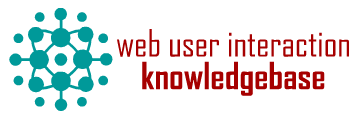Structured Data (JSON+LD Rich Snippets)
Categories
Component ID
Component name
Component type
Maintenance status
Development status
Component security advisory coverage
Downloads
Component created
Component changed
Component body
Structured data markup provides a standard way of describing things on your website, along with their properties.
Structured Data as defined by Google:
Structured data refers to kinds of data with a high level of organization, such as information in a relational database. When information is highly structured and predictable, search engines (like Google) can more easily organize and display it in creative ways. Structured data markup is a text-based organization of data that is included in a file and served from the web.
For more info see: https://developers.google.com/search/docs/guides/intro-structured-data
Supported features
Site Name in Search Results
https://developers.google.com/search/docs/guides/enhance-site
Use structured data markup on your public website to indicate the preferred name you want Google to display in Search results. You can also provide more than one possible name for your site, and let Google Search algorithms choose between them. Once Google has crawled and indexed the updated page, we can use the provided name in Search results as shown in the screenshot.
For more info see: https://developers.google.com/structured-data/site-name
https://developers.google.com/search/docs/guides/enhance-site#add-a-site...
Specifying Your Organization's Logo
You can specify which image Google should use as your organization's logo in search results and the Knowledge Graph.
For more info see: https://developers.google.com/structured-data/customize/logos
Social Profile Links
Use markup on your official website to add your social profile information to a Google Knowledge panel. Knowledge panels prominently display your social profile information in some Google Search results.
For more info see: https://developers.google.com/search/docs/data-types/social-profile-links
JSON-LD
What is JSON-LD?
JSON-LD is an easy-to-use JSON-based linked data format that defines the concept of context to specify the vocabulary for types and properties.
https://www.youtube.com/watch?v=vioCbTo3C-4
Example:
<script type="application/ld+json">
{
"@context": "http://schema.org",
"@type": "Person",
"name": "John Doe",
"jobTitle": "Graduate research assistant",
"affiliation": "University of Dreams",
"additionalName": "Johnny",
"url": "http://www.example.com",
"address": {
"@type": "PostalAddress",
"streetAddress": "1234 Peach Drive",
"addressLocality": "Wonderland",
"addressRegion": "Georgia"
},
"sameAs": [
"http://www.facebook.com/your-profile",
"http://instagram.com/yourProfile",
"http://www.linkedin.com/in/yourprofile",
"http://plus.google.com/your_profile"
]
}
</script>
https://developers.google.com/schemas/formats/json-ld
This module will use only this format. Why?
JSON-LD is the recommended format. Google is in the process of adding JSON-LD support for all markup-powered features.We recommend using JSON-LD where possible.
More about this format: http://json-ld.org/
Future plans
More will follow soon ...
If you are interested in a particular feature use the issue queue or contact me.
